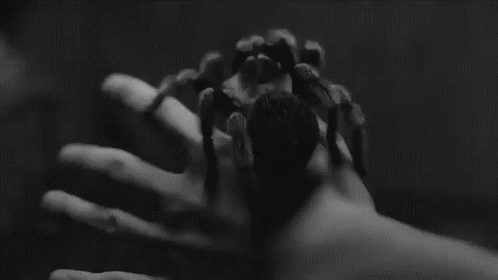The Science Of Scary: 10 Reasons Why You Love Being Scared
1. Phobias

Phobias are the ultimate in fear. They are classically known as irrational fears, but actually, most of them are based in some pretty sound logic.
Whilst phobias aren't entirely understood, it is thought that a certain amount of social conditioning goes into them. If a child sees a parent panic at the sight of a wasp or a spider, they are more likely to develop a fear of them too, and why wouldn't they? Humans learn by observation and it makes much more sense to take someone's word for it that something is dangerous than to go and see for yourself.
Unfortunately, as easily as fear is learnt, it's mighty difficult to unlearn. You can't make someone with a phobia of spiders "learn" that there are no negative consequences of holding one, because the fear response in itself is considered a negative consequence by their brain.
Many of the specific phobias (as opposed to social anxiety and agoraphobia) can be traced back to real dangers.
Acrophobia (fear of heights), for example, would ensure that our ancestors stayed away from high, lineage-ending precipices. Arachnophobia ensured that we gave poisonous creepy crawlies a wide berth and it is thought that the fear of needles (trypanophobia) might stem from the danger posed by the biting/stinging insects that we used to share our trees with.
Research has shown that captive primates can acquire a fear of snakes very quickly, even when they have no previous experience of them, which seems to suggest that we're primed for fear.
All this makes you wonder what kid of hell-beast is tucked away in our evolutionary past to make us fear things like this and this.
Sweet dreams.
Do you love science t h i s m u c h ? Us too. Like us on Facebook or follow us on Twitter for plenty more where that came from.